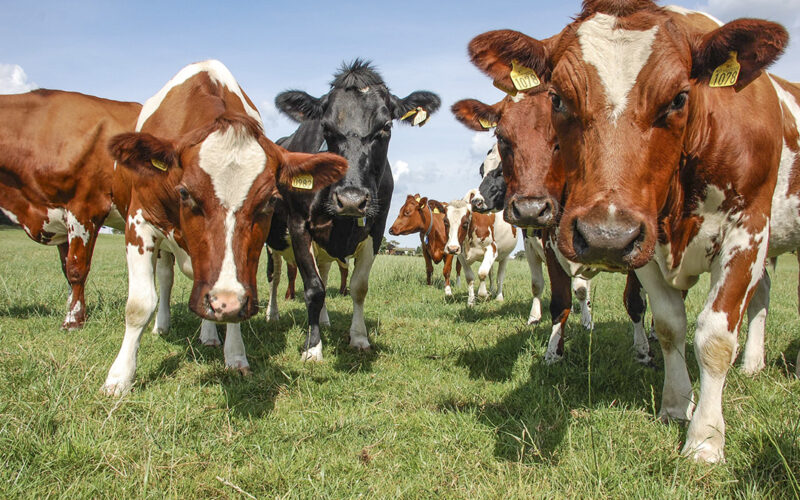A significant majority of dairy farms across the United Kingdom are found to be in breach of pollution regulations, leading to the discharge of substantial quantities of cow manure into rivers, according to recent findings.
Data obtained through freedom of information requests reveals alarming levels of non-compliance among dairy farms in various regions of the UK. Between 2020 and 2021, 69% of the 2,475 dairy farms inspected in England by the Environment Agency were found to be in violation of environmental regulations. Similarly, in Wales, 80% of the 83 dairy farms inspected by Natural Resources Wales between 2020 and 2022 were non-compliant. Northern Ireland reported 50% non-compliance among the 339 dairy farms inspected by the Department of Agriculture, Environment and Rural Affairs between 2020 and 2022, while Scotland recorded 60% non-compliance among the 114 dairy farms initially inspected by the Scottish Environmental Protection Agency between 2020 and 2023.
The pollution stemming from animal waste poses severe ecological threats to rivers, with nutrient-rich effluent leading to the proliferation of algal blooms. These blooms deplete oxygen levels in water bodies, suffocating aquatic life and disrupting ecosystems.
Campaigners draw parallels between the dairy industry’s pollution crisis and sewage contamination, attributing both to aging infrastructure and intensified effluent discharges. They argue that pricing pressures from major supermarkets, which offer minimal returns to dairy farmers, have incentivized intensified production practices, exacerbating pollution levels.
Charles Watson, chair of the charity River Action, emphasizes the urgent need for industry-wide reforms to address the pollution crisis. River Action calls for dairy processors to incentivize responsible farming practices among producers, advocating for less intensive farming methods or investments in sustainable waste management solutions.
Additionally, campaigners urge regulatory authorities to strengthen enforcement of existing anti-pollution regulations. Many farms evade scrutiny for extended periods due to inadequate staffing levels within regulatory agencies, a consequence of underfunding. River Action calls upon national bodies to expand grant schemes aimed at improving slurry management infrastructure.
In response to these concerns, the Department for Environment, Food and Rural Affairs (DEFRA) asserts its commitment to tackling water pollution from agriculture. DEFRA highlights investments in slurry infrastructure, amounting to £74 million, aimed at reducing agricultural runoff. Additionally, DEFRA mentions the rollout of farming schemes to promote environmental stewardship and sustainability practices among farmers, with the goal of minimizing nutrient pollution entering rivers.
As discussions continue on addressing the dairy industry’s environmental impact, stakeholders emphasize the critical importance of collaborative efforts among farmers, processors, regulators, and government agencies to mitigate pollution and safeguard waterways for future generations.








